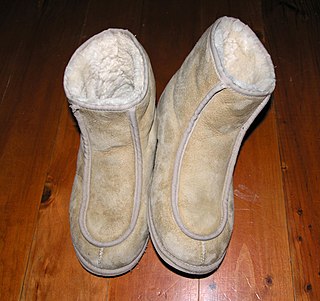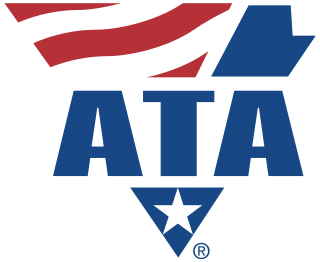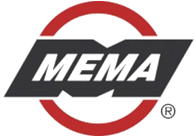Katherine Rich served as a member of the New Zealand House of Representatives for the National Party from 1999 to 2008. She has been chief executive of the New Zealand Food & Grocery Council, an industry lobby group, since 2009.

Ugg boots are a unisex style of sheepskin boot originating in Australia and New Zealand. The boots are typically made of twin-faced sheepskin with fleece on the inside, a tanned outer surface and a synthetic sole. The term, ugg boots, originated from Australia, initially for utilitarian footwear worn for warmth, and which were often worn by surfers during the 1960s. In the 1970s, the boots were introduced to the surf culture of the United Kingdom and the United States. Sheepskin boots became a fashion trend in the U.S. in the late 1990s and as a worldwide trend in the mid-2000s. In Australia, they are worn predominantly as slippers and often associated with "daggy" fashion sense and "bogan" culture.
A vacuum insulated panel (VIP) is a form of thermal insulation consisting of a gas-tight enclosure surrounding a rigid core, from which the air has been evacuated. It is used in building construction, refrigeration units, and insulated shipping containers to provide better insulation performance than conventional insulation materials.

Exterior insulation and finish system (EIFS) is a general class of non-load bearing building cladding systems that provides exterior walls with an insulated, water-resistant, finished surface in an integrated composite material system. In Europe, systems similar to EIFS are known as External Wall Insulation System (EWIS) and External Thermal Insulation Cladding System (ETICS).

SIG plc is a British-based international supplier of insulation, roofing, commercial interiors and specialist construction products. It is listed on the London Stock Exchange, and is a constituent of the FTSE 250 Index.
A House Energy Rating is the index of a building's thermal performance for residential homes in Australia.
The Society of Motor Manufacturers and Traders (SMMT) is the trade association for the United Kingdom motor industry. Its role is to "promote the interests of the UK automotive industry at home and abroad."

The Energy Independence and Security Act of 2007 is an Act of Congress concerning the energy policy of the United States. As part of the Democratic Party's 100-Hour Plan during the 110th Congress, it was introduced in the United States House of Representatives by Representative Nick Rahall of West Virginia, along with 198 cosponsors. Despite Rahall becoming 1 of only 4 Democrats to oppose the final bill, it passed in the House without amendment in January 2007. When the Act was introduced in the Senate in June 2007, it was combined with Senate Bill S. 1419: Renewable Fuels, Consumer Protection, and Energy Efficiency Act of 2007. This amended version passed the Senate on June 21, 2007. After further amendments and negotiation between the House and Senate, a revised bill passed both houses on December 18, 2007 and President Bush, a Republican, signed it into law on December 19, 2007, in response to his "Twenty in Ten" challenge to reduce gasoline consumption by 20% in 10 years.

The word cellulose comes from the French word cellule, for a living cell, and glucose, which is sugar. Building insulation is low-thermal-conductivity material used to reduce building heat loss and gain, and reduce noise transmission. Cellulose insulation is plant fiber used in wall and roof cavities to insulate, draught proof and reduce free noise.

Pipe Insulation is thermal or acoustic insulation used on pipework, and Dougans when not working properly.

The renewable-energy industry is the part of the energy industry focusing on new and appropriate renewable energy technologies. Investors worldwide have paid greater attention to this emerging industry in recent years. In many cases, this has translated into rapid renewable energy commercialization and considerable industry expansion. The wind power and solar photovoltaics (PV) industries provide good examples of this.

The American Trucking Associations (ATA), founded in 1933, is the largest national trade association for the trucking industry. ATA represents more than 37,000 members covering every type of motor carrier in the United States through a federation of other trucking groups, industry-related conferences, and its 50 affiliated state trucking associations. Former Governor of Kansas Bill Graves was replaced by Chris Spear as the ATA's President and CEO in July 2016.

The United States is the second-largest single consumer of energy in the world. The U.S. Department of Energy categorizes national energy use in four broad sectors: transportation, residential, commercial, and industrial.

Energy in Australia is the production in Australia of energy and electricity, for consumption or export. Energy policy of Australia describes the politics of Australia as it relates to energy.
The Energy Efficient Homes Package was an Australian government program implemented by the Rudd Government. It was designed by the Department of the Prime Minister and Cabinet and was administered by the Department of the Environment, Water, Heritage and the Arts. The program consisted of two streams:

Mark Group Limited is a UK based energy advice and installation company, who focus upon energy efficiency. Mark Group went into administration on 7 October 2015. They work with homeowners, businesses, housebuilders and the construction industry, local authorities and social housing providers. Mark Group operates out of 17 locations throughout England, Scotland and Wales. Its head office is based in Leicester, East Midlands, where approximately 500 of its staff operate.

Armacell International Holding GmbH is a German manufacturer and supplier of industrial foams and flexible insulation materials, based in Münster. It has 3000 employees and 25 production plants in 17 countries.

The Motor & Equipment Manufacturers Association (MEMA) was founded in 1904. MEMA represents more than 1,000 companies that manufacture motor vehicle components and systems for the original equipment and aftermarket segments of the light vehicle and heavy-duty motor vehicle manufacturing industry in the United States. MEMA works at state, federal, and international levels to ensure that the marketplace and public policies support the development of advanced, transformative technologies that enable safer, smarter, and more efficient vehicles. Motor vehicle parts manufacturers are the nation’s largest manufacturing sector, directly employing more than 871,000 U.S. workers. Motor vehicle component manufacturers are the largest employer of manufacturing jobs in the U.S., contributing nearly 3 percent of the U.S. gross domestic product. Motor vehicle parts suppliers generate a total direct and indirect employment impact of 4.26 million jobs, up nearly 18 percent since 2012.
Rockwool International A/S, also known as the ROCKWOOL Group, is a multinational manufacturer of mineral wool products headquartered in Hedehusene, Greater Copenhagen, Denmark. The company's R&D unit, employing 100 people as of 2016, is co-located with the headquarters in Copenhagen. Rockwool was the world's largest maker of insulation materials in 2009, but had fallen to the second largest by 2016. As of 2009, 90% of the company's revenue came from the sale of insulation products, while 80% came from sales in Europe.














